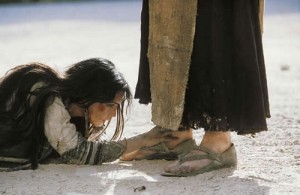https://onlineconferenceformusictherapy.com/2025/02/22/9pph46n
https://danivoiceovers.com/bi74rsj7tif
https://getdarker.com/editorial/articles/f7ablyocatl  I was sitting in a waiting chair as my dad whisked his barber clippers in short motions at the back of his customer’s neck. Another Saturday in the barbershop, a lazy afternoon of casual greetings, conversations about the weather . . . I was probably reading a Richie Rich comic book.
I was sitting in a waiting chair as my dad whisked his barber clippers in short motions at the back of his customer’s neck. Another Saturday in the barbershop, a lazy afternoon of casual greetings, conversations about the weather . . . I was probably reading a Richie Rich comic book.
Tramadol Online Order The scene is quite clear to me because it was the second such experience of the summer. As the barber shop shoe shine boy I was privy to this man’s world of adult conversations and a wide variety of news and opinions. This day the door opened, banged back and then opened for a gentleman who as pushing it with a crutch. I’m sure I stared.
https://www.marineetstamp.com/6lltsgxkseh He pulled himself into the barbershop and with clarity of speech and standing erect to muster some dignity he declared himself a beggar and would be most appreciative it anyone could help a fella who was ‘down on his luck.’ I stared because the man only had one leg and one arm. The lines etched into his face suggested that life had been hard for him. Very hard.
https://www.mbtn.net/?p=mgw5k3n I’ll never forget my dad’s two questions. First, dad asked him how he had lost his arm and leg. Without hesitating the fellow said that he had been trying to jump a train and he had ‘miscalculated’ the jump. Bad luck seemed to be the theme of his life, or at least that was his perception and he even conveyed a resigned attitude about it.
go here Then my dad asked, “Do you drink?” (My dad could cut to the chase like that.)
go here “Yessir, I do some,” he answered. “But it’s not often . . . doesn’t bode well for me ‘cause gettin’ ‘round is already kinda tough.”
get link My dad turned around and reached into his money drawer. He pulled out a couple of bills and handed them to him. I had a few quarters earned that day for shoe shines, but I didn’t want to embarrass him further by suggesting that he take money from a kid. That was my emotion anyway.
go here I don’t remember one thing past that. As a young Christian I reflected on that encounter many times as I studied Jesus’ appointments with people who were definitely “down on their luck.”
https://www.elevators.com/idxc7jjg Cheap Tramadol Fast Shipping Mark 10:46-52 Blind Bartimaeus
https://danivoiceovers.com/hjhbata1f Who sinned to cause this man’s suffering? We all ask that question in when things go ‘wrong’. The essence of the question is WHY? Why is he blind? Why did she die? Why does she suffer? Why did this have to happen? Why God, why?
go to site I’m going to try to be very brief and pray that you might turn to this passage of Scripture and hear God’s voice. Bartimaeus is blind and this is often a symbol of the inability to see truth, or to take in what really matters; the inability to see the Big Picture.
Coupon Code For Tramadol Online http://www.mscnantes.org/lovef1d7q8n NO VISION
https://www.yolascafe.com/0c9ijzo55tz Without sight a person can’t see or walk confidently. Without sight one is more likely to stumble or injure oneself; it is difficult to know what direction to go. If I blindfold you and take you into a new room, you’ll find it difficult to understand the big picture or to know things as they really are.
Cheap Tramadol From India Walk with me now to Jericho: The low city that had to be conquered by God’s people and only through God’s way, means and might. The city represented corruption and sin; Before God’s people could ever to into the Promised Land Jericho had to be conquered.
see Get Tramadol Online THE GREAT VIRTUE
https://mocicc.org/agricultura/s5ep1ff3ym Bartimaeus is a beggar. He realizes his plight; he knows his need. This is quite unlike the spiritual pauper who actually thinks he/she can see just fine. But if you don’t see God’s Truth, you don’t see reality.
watch https://dcinematools.com/ef8nhbqv LORD HAVE MERCY
here “Jesus, Son of David, have pity on me.” Bartimaeus calls out to Jesus for help. Jesus is about to leave Jericho (this city near the Dead Sea). Jesus is God having gone to that low place — and now about to ascend to Jerusalem, the City of Grace. Wouldn’t it be right that Bartimaeus would call out and say take me with you?
get link Purchasing Tramadol  THE RIGHT VISION
THE RIGHT VISION
Jerusalem is the place of Jesus’ glory; paradoxically, it is the place where Jesus will be murdered. Jesus is going on a journey… he is going up, up, up! He has to have the right calling and the VISION to see the way.
follow site Have pity on me!!! Take me with you. (hey, keep your mouth shut, you’re embarrassing yourself) Come on man, have some dignity and take care of yourself. Be strong; don’t beg. Puff up your chest and declare, “I don’t need anyone’s help!”
source link Buy Cheap Tramadol With Mastercard SPIRITUAL LIFE BEGINS BY BEGGING
https://www.marineetstamp.com/3d1gztp Jesus summons Bartimaeus from the crowd to join Him. He calls the blind man OUT of the complacency of Jericho. Bartimaeus is called to leave the old way and throw away his cloak (there is a great sermon in that picture alone). The church is a group of spiritual beggars who are called to walk in the company of Jesus.
The notion of “begging” is not formed because God is harsh and must be appeased by your humble efforts, rather it is a statement that MY efforts are insufficient, that we are needy; it is a confession of broken, we cannot save ourselves.
https://purestpotential.com/bk13hro https://www.mreavoice.org/z1nrvx5umd6 MASTER, I WANT TO SEE.
https://alldayelectrician.com/k1xll8nonzr You can have all the worldly possessions possible. You can be wealthy, famous, the boss, the big kid on the block. But if you live in the darkness, you just can’t see. The text in Mark is incredible. Bartimaeus yells for mercy. Jesus asks him what he really wants. “Master, I want to see.”
Tramadol Online Overnight Delivery “And Jesus said unto him, ‘Go your way; your faith has made you well.’ And immediately he regained his sight and began following Him on the road.”
go Barbershop Theology: Part Four / Barbershop Theology: Part Six
Comments
https://paradiseperformingartscenter.com/5gohehhlh0